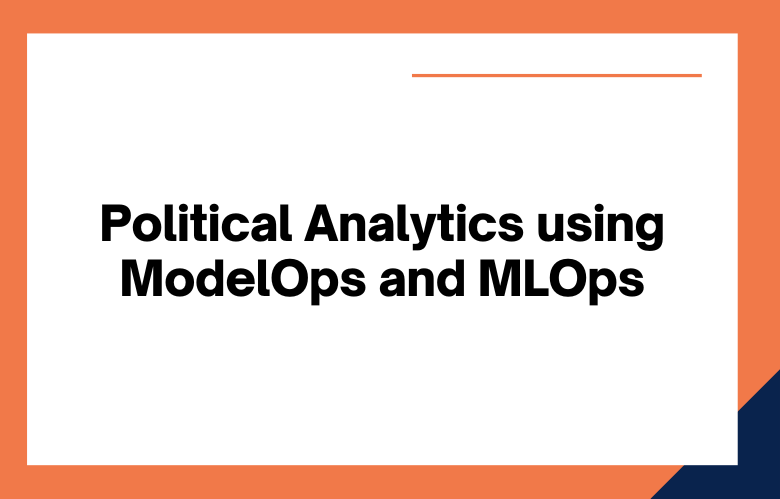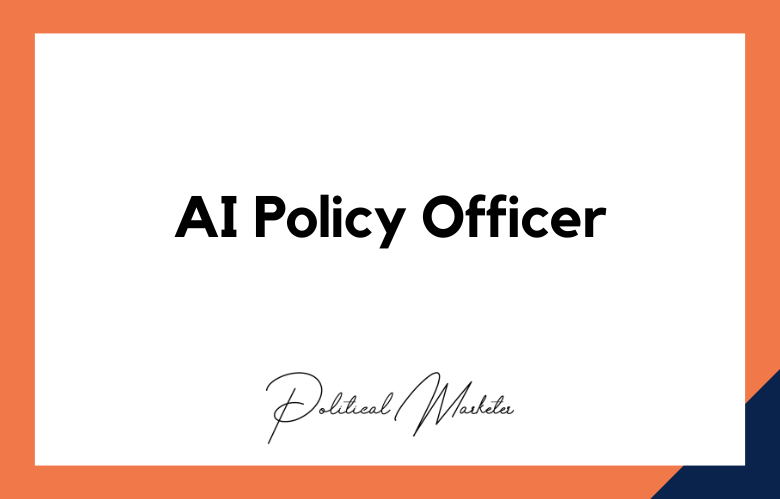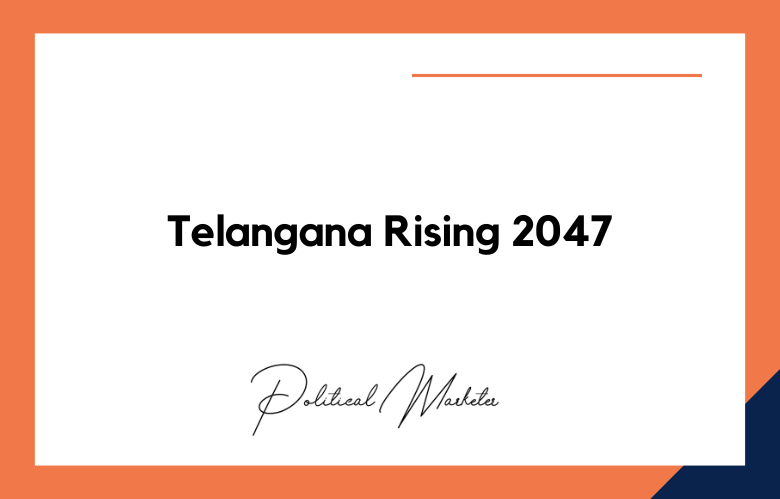Enter data analytics. We can understand the forces driving these divisions and find common ground. But data analytics is a complex field, and there are a lot of moving parts. That’s where ModelOps and MLOps come in.
ModelOps is a set of best practices for managing machine learning models’ development, deployment, and monitoring.
MLOps is a subset of ModelOps that focuses specifically on machine learning models.
Using ModelOps and MLOps, we can streamline the process of developing and deploying political analytics models, which will help us make better decisions about allocating resources and communicating with voters.
In the age of big data, organizations struggle to make sense of the vast amounts of data they are collecting.
From social media to clickstream data, an overwhelming amount of data needs to be analyzed to make informed decisions.
Political Analytics is the application of data analytics to political data to gain insights into public opinion, election campaigns, and government policies.
We will discuss finding value in political analytics using model operations (ModelOps) and machine learning operations (MLops).
We will also provide tips on getting started with political analytics.
What is ModelOps?
ModelOps is a set of practices and tools that help organizations build, operate, and optimize machine learning models.
ModelOps helps organizations automate the lifecycle of machine learning models from development to production.
This includes model management, model deployment, monitoring, and scaling.
ModelOps is a set of practices that helps organizations manage the lifecycle of their predictive models.
It includes everything from model development and testing to deployment and monitoring.
By using ModelOps, organizations can improve their models’ quality while reducing the cost and time required to deploy them.
ModelOps, or model operations, manages and governs machine learning models throughout their lifecycle.
This includes everything from development and training to deployment and monitoring.
What is Machine Learning Operations (MLOps)?
MLOps is a set of practices and tools that help organizations automate the end-to-end lifecycle of machine learning models from development to production.
MLOps helps organizations automate model management, deployment, monitoring, and scaling tasks.
It also helps with deploying machine learning models into production environments.
It involves automating machine learning workflows to be repeated reliably at scale with minimal human intervention.
MLOps aims to help organizations move quickly and efficiently from idea to value by eliminating silos between data scientists and engineers.
End-users can quickly get value from models without waiting for long development cycles.”
Politics is an important application domain for both ModelOps and MLops because of the need for speed and agility in responding to rapidly changing circumstances such as elections.
In addition, there is a need to optimize resources to reduce costs.
MLOps is a set of practices that helps organizations manage the lifecycle of their machine-learning models.
Like ModelOps, it includes everything from development and testing to deployment and monitoring.
However, MLOps also adds a few extra steps, such as automated model training and hyperparameter tuning.
By using MLOps, organizations can improve their models’ quality while reducing the cost and time required to deploy them.
MLOps, or machine learning operations, is a subset of DevOps that focuses on automating and managing machine learning workflows.
Like traditional DevOps practices, MLOps aims to shorten the feedback loop between developers and users.
This helps to ensure that changes can be made quickly and efficiently without compromising quality or stability.
How Can ModelOps and MLOps Help Us Find Value in Political Analytics?
We need to trust the data we’re working with to find value in political analytics.
ModelOps and MLops can help us do just that. By automating collecting, cleaning, and analyzing data, we can free up time that would otherwise be spent on manual tasks.
This allows us to focus on more important things, like making decisions based on that data.
What are ModelOps and MLOps?
ModelOps takes a hands-on approach with your data and understanding it as much as possible, developing models to test various hypotheses, putting those models into production, and monitoring their performance.
Essentially, ModelOps allows you to take a data-driven approach to decision-making.
On the other hand, MLOps is the process of applying machine learning algorithms to data to automate prediction and optimization.
It encompasses everything from model creation and training to deployment and monitoring.
Much like ModelOps, MLOps allows you to take a data-driven approach; however, it takes things one step further by using machine learning algorithms to automate predictions and optimizations.
How can ModelOps and MLOps be used in the political realm?
There are several ways in which ModelOps and MLops can be used in the political realm. For example, they can be used to:
- Analyze large data sets to identify trends
- Make predictions about voter behavior
- Optimize communication strategies
- Automate decision-making processes
- And more!
Combining ModelOps and MLops
To find value in political analytics, we must utilize both ModelOps and MLops.
Doing so allows us to collect and process data more efficiently to make better-informed decisions.
For example, we want to use political analytics to predict the outcome of an election. First, we must collect data on past elections, voter demographics, economic indicators, etc.
Once we have this data, we can use ModelOps to develop a predictive model.
After it is deployed, we can use monitoring tools included in both ModelOps and MLops to evaluate the performance of our model and make any necessary adjustments.
How to Find Value in Political Analytics using ModelOps and MLOps
Analytics is the science of turning data into insights. In politics, analytics is used to understand public opinion, predict election outcomes, and track the impact of policies.
Analytics needs to be practical, timely, actionable, and accurate.
ModelOps is the process of deploying and managing models.
MLOps is a variation of ModelOps that focuses on deployments of machine learning models.
In political analytics, ModelOps and MLOps are used to deploy predictive models. These models are used to generate insights about voter behavior, assess the impact of policies, predict election outcomes, and more.
Political analytics must be timely, actionable, and accurate to be effective.
Timely means that the data must be up-to-date to generate insights relevant to the current political landscape.
Actionable means that the insights must be helpful for decision-makers. Accurate means that the predictions made by the models must be close to reality.
Value in political analytics comes from having a process for deploying and managing models that are timely, actionable, and accurate.
Using ModelOps or MLOps, we can ensure that our models are deployed quickly and efficiently and meet the high standards required for political analytics.
Development:
In the development phase, models are created and tested.
This is where data scientists work with historical data to develop predictive models that can be used to identify potential voters, understand how they might vote, and target them with tailored messages.
Deployment:
Once a model has been developed and tested, it must be deployed in the real world. This is where MLOps comes in.
MLOps automates the process of deploying machine learning models so that political organizations can use them in a way that is efficient and scalable.
Monitoring:
The monitoring phase ensures that models are performing as expected.
This includes tracking metrics such as accuracy and precision and ensuring that the data used to train models is up-to-date.
By continuously monitoring their models, organizations can ensure they are always using the most accurate information possible to make decisions.
The Benefits of Using ModelOps and MLOps for Political Analytics
There are several benefits to using ModelOps and MLOps for political analytics:
- It helps to reduce the time needed to develop and deploy models.
- It increases transparency by providing a clear framework for model development and deployment.
- It helps to ensure reproducibility by making it easier to track changes to models over time.
- It enables collaboration between different teams by allowing members of other groups to work on models simultaneously.
- It facilitates stakeholder communication by providing a common language for discussing model development and deployment.
How to Get Started with ModelOps and MLOps for Political Analytics
If you’re interested in getting started with ModelOps and MLops for political analytics, there are a few things you need to do first:
- You need to identify the stakeholders involved in developing and deploying the model.
- It would help if you defined the model development and deployment workflow.
- It would help if you established metrics for measuring model performance.
- It would help if you created a plan for monitoring model performance over time.
Conclusion
Political analytics is a complex field, but by using ModelOps and MLOps, organizations can tap into the power of data to improve their chances of success.
From developing predictive models to deploying them at scale, these processes can help organizations make better use of data throughout the entire lifecycle of their campaigns.
A political campaign has two data types: objectives like voter files and census data.
The second is subjective, such as polls or surveys. Hard to find value in all this data?
Look no further!
We have over a decade of experience distilling valuable insights from big data sets for our clients.
Our team of experts utilizes the latest technologies like advanced analytics, ModelOps, and MLOps to help make your campaigns more successful.
Contact us for Political Campaign Consulting today and see how we can help you win!
Call: +91 9848321284
Email: [email protected]











